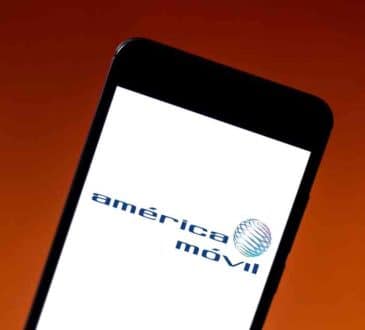What B2C Sellers Need To Know About Launching a B2B E-commerce Store

The B2B market is growing rapidly and hard to ignore, even for businesses that have previously sold only to consumers. An increasing number of B2C retailers are expanding into the B2B space, taking advantage of changes in technology and B2B procurement culture to grow revenue by selling to other businesses.
When organizations primarily focused on the consumer market decide to expand operations into B2B sales, they find that some aspects of selling are much the same. Their experience in selling to consumers is an advantage — the B2B space has been slow to grasp the type of shopper-friendly experiences that are part of everyday practice when selling to consumers.
The technology is largely the same too. Applications like Magento and WooCommerce, which dominate the B2C sector, are more than capable of supporting B2B operations.
However, there are also many differences between B2B and B2C: particularly concerning the buyer’s expectations and the relationship between buyer and seller. Business buyers prefer long-term relationships, often with negotiated contractual obligations. They expect a level of personalization rarely seen in the consumer world. Moreover, business buyers often expect an ecommerce retailer to provide integration between the seller’s store and their eProcurement or spend management platform.
B2B is a Massive Opportunity
The combined online B2B sales market is estimated to be worth $9 trillion a year. That figure combines all online sales channels, including business networks, eProcurement platforms, and EDI networks. Ecommerce, in which a company’s employees visit a supplier’s ecommerce store to make a purchase, is worth $1 trillion. However you slice the pie, there is a lot of money to be made by selling to other businesses.
In the past, consumer retailers were not well-equipped to sell to businesses. Procurement professionals preferred one-on-one interactions with a supplier’s sales personnel. They were more likely to pick up the phone than open a web browser. The situation has gradually changed as younger professionals begin to dominate procurement departments.
Today, many business-to-business transactions start on the web. On average, a buyer will conduct 12 searches before interacting with a potential supplier. Procurement professionals are more comfortable buying on an ecommerce store than they once were. Ecommerce is a competitive advantage in many situations, as we’ll discuss later in this article.
Focus on the Fundamentals
Whether you’re selling to businesses or consumers, the fundamentals are similar. Everything you care about in your consumer ecommerce store — branding, SEO, performance, the shopping experience — is just as important to B2B ecommerce. Just as in the consumer world, your ecommerce store should be a machine focused on attracting leads with content, search engine optimization, and advertising, before converting them into buyers.
It’s All About Relationships
The similarities between consumer and B2B ecommerce shouldn’t obscure the significant differences. At the beginning of a relationship, procurement professionals expect to speak to a salesperson before pulling the trigger on a purchase. Unlike consumers, they won’t simply find a product, put it in their cart, and hit the “buy now” button.
Additionally, B2B procurement can involve many stakeholders, from a procurement researcher to a high-level executive, depending on the size of the purchase. There is likely a lot of back-and-forth negotiation before a supplier is approved.
However, once the details have been figured out, a relationship established, and your business accepted as an approved supplier, subsequent purchases via your ecommerce store will be more straightforward.
Another obvious difference between B2B and B2C is payment. On a B2C store, the shopper will pay for their purchases immediately by credit card. In some cases, B2B sales work the same, but the vast majority of business buyers expect to receive an invoice, which they will pay within an agreed period.
E-commerce is an Advantage
As I said earlier, the B2B world has been slow to digitize. It’s estimated that around 80 percent of manufacturers and distributors process orders by hand. On the other side of the transaction, buyers are enthusiastically embracing ecommerce. Half of business-to-business buyers make online purchases but only 22 percent of suppliers have ecommerce stores. This imbalance gives B2B sellers with ecommerce expertise a competitive advantage.
B2B buyers value personalization even more than B2C customers. They may expect negotiated pricing, bulk discounts, per-unit pricing, personalized catalogs, individual invoicing and payment terms, and more. The good news is that modern ecommerce stores like Magento, BigCommerce, and SAP Hybris include all of these features. A B2C retailer with experience of Magento, for example, should be able to meet the needs of business buyers with Magento’s native features.
Why Integration and Automation?
Earlier I wrote that online B2B sales were worth $9 trillion and that ecommerce accounted for $1 trillion of that. A proportion of the remaining $8 trillion is tied to purchases made within buyer eProcurement platforms. Business buyers adopt eProcurement to centralize procurement data and processes, giving them greater control over spending and reducing the cost of procurement.
The widespread use of eProcurement gives sellers with ecommerce platforms, another advantage over their non-digital competitors. EProcurement is most valuable when procurement data is automatically integrated with the platform. Business buyers who use eProcurement prefer to do business with suppliers who are capable of offering punchout catalogs, purchase order automation, and electronic invoicing — all of which require an ecommerce store equipped for integration.
To focus on just one of these, punchout catalogs are a desirable feature to any buyer using eProcurement. A punchout catalog integrates a seller’s ecommerce catalog with a buyer’s eProcurement platform. The buyer can search for products within their eProcurement interface and be redirected the seller’s personalized ecommerce catalog. Once the buyer has finished selecting products, they “punchout” rather than checking out, and a requisition order is automatically created in their eProcurement platform.
Although integration isn’t straightforward — there are many incompatible eProcurement platforms on the market — there are inexpensive cloud solutions that allow any ecommerce application to integrate with any eProcurement platform for punchout and purchase order automation. An ecommerce retailer that promotes their ability to integrate has yet another competitive advantage over non-digital suppliers.
B2B ecommerce might be a challenging market for organizations used to selling to consumers, but it’s a huge market eager to buy from forward-looking sellers that offer cutting-edge ecommerce and integration.
Written by Brady Behrman.
Have you read?
1. 5 Tips for Powerful Brand Storytelling by Andrew Witkin.
2. Daring to Travel To North Korea? 7 Things To Keep In Mind.
3. World’s Best Water Sports Destinations, 2019.
4. Five Landmarks of Leadership by Dave Ferguson.
5. Fashion Tips For Women Attending Business Conferences.
Add CEOWORLD magazine to your Google News feed.
Follow CEOWORLD magazine headlines on: Google News, LinkedIn, Twitter, and Facebook.
This report/news/ranking/statistics has been prepared only for general guidance on matters of interest and does not constitute professional advice. You should not act upon the information contained in this publication without obtaining specific professional advice. No representation or warranty (express or implied) is given as to the accuracy or completeness of the information contained in this publication, and, to the extent permitted by law, CEOWORLD magazine does not accept or assume any liability, responsibility or duty of care for any consequences of you or anyone else acting, or refraining to act, in reliance on the information contained in this publication or for any decision based on it.
Copyright 2024 The CEOWORLD magazine. All rights reserved. This material (and any extract from it) must not be copied, redistributed or placed on any website, without CEOWORLD magazine' prior written consent. For media queries, please contact: info@ceoworld.biz
SUBSCRIBE NEWSLETTER








